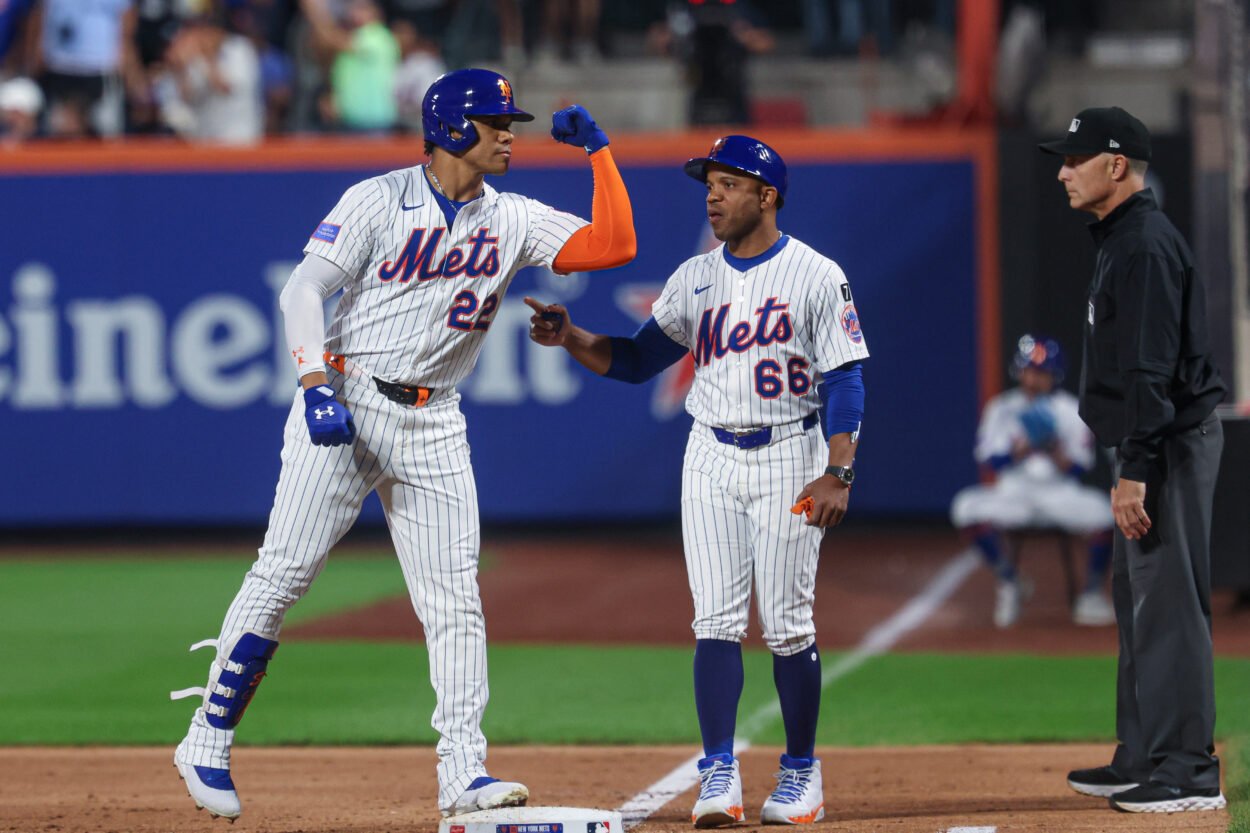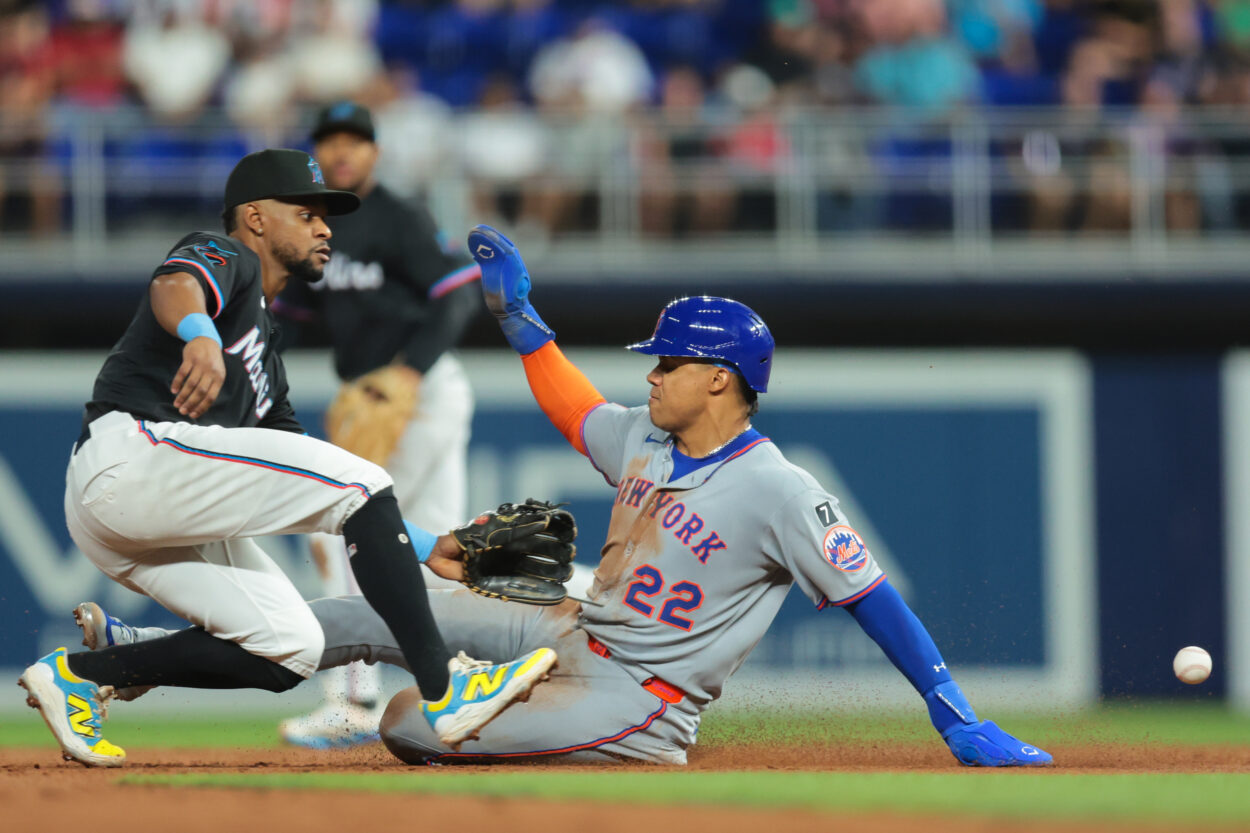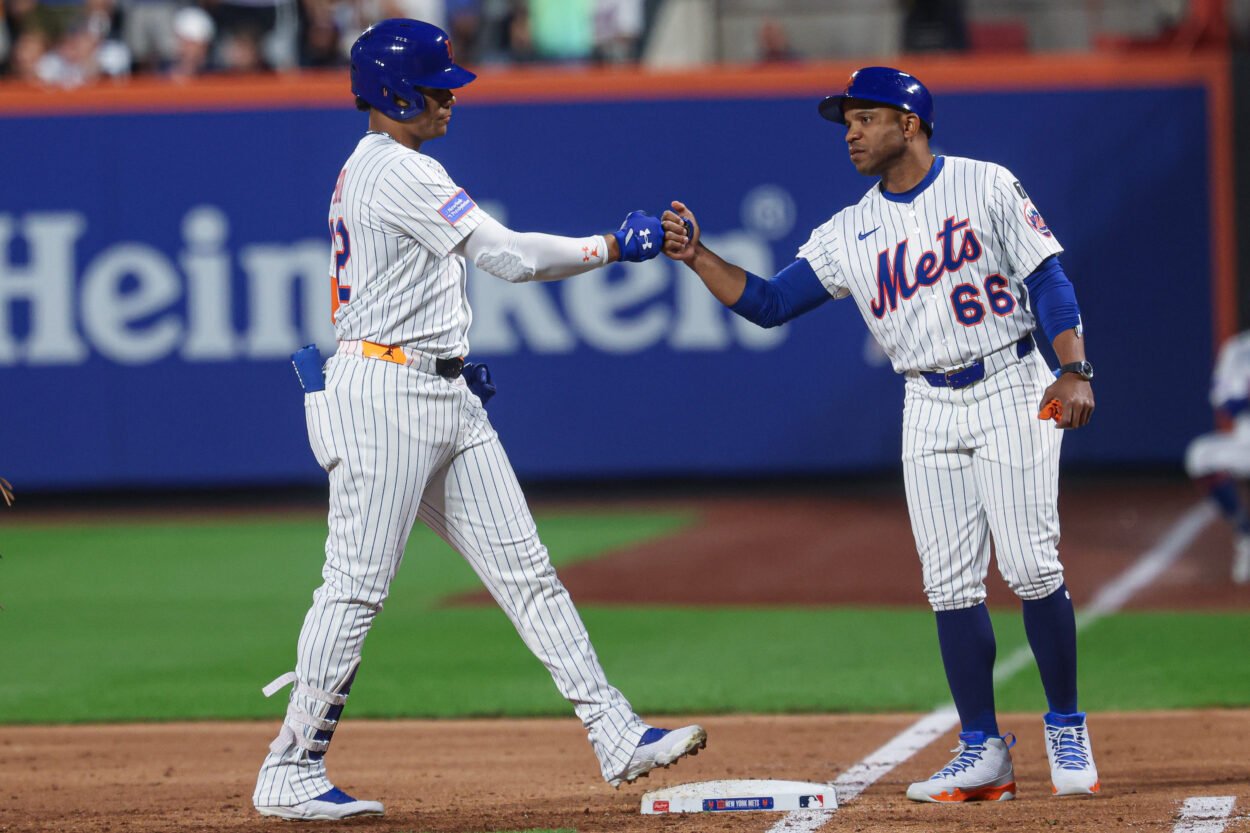
Some offseasons hit you with a headline move. Others sneak up with something quieter, almost subtle, yet every bit as meaningful. For the New York Mets, the departure of Antoan Richardson falls firmly in that second category. It didn’t dominate talk radio, but inside the walls of Citi Field, it mattered—a lot.
A unique skill set walks out the door
Richardson wasn’t just another coach. Anyone who watched the Mets run the bases last year could see the fingerprints of someone who knew exactly how to maximize speed, timing, and situational aggression. The Mets finished with the fifth-most steals in MLB and ranked fifth in FanGraphs’ baserunning metric. Those aren’t accidental improvements. They’re markers of a team buying into a program.
And the biggest success story? Juan Soto stealing a career-high 38 bags. A superstar expanding his game doesn’t happen without trust in the coach guiding him, and Soto trusted Richardson deeply.

That’s part of why this loss stings. The Mets didn’t shrug their shoulders and let him walk. They made a real effort, reportedly offering to double his salary to somewhere north of $300,000 on a two-year deal. In coaching terms, that’s significant money, especially for a first base and baserunning voice.
But Richardson still chose the Atlanta Braves, and the Mets were left holding an offer they thought was enough but ultimately wasn’t.
What the failed pursuit says about the Mets’ offseason
It’s interesting, and maybe a little ironic, that the notion of “insulting other coaches” reportedly factored into the Mets’ hesitation to match Richardson’s request. Jon Heyman noted that this shouldn’t have been a concern, especially since the organization fired most of the staff anyway. If ever there was a moment to pay for a specialized skill, this was it.

There’s also the Soto factor. Heyman suggested the slugger’s comfort could take a hit, and while that’s not the sort of thing you quantify in WAR, it matters. A superstar who feels fully supported tends to play looser, freer. Losing someone he trusted as much as Richardson introduces a variable the Mets didn’t need.
Richardson himself acknowledged how hard the choice was. “We’re friends for life,” he told Heyman. “Our relationship goes beyond the baseball field.” That’s not typical coach-player boilerplate. That’s real connection.
And yet the Braves, a division rival no less, won out. For a Mets front office, watching a valuable coach cross that line can’t sit comfortably.
A move with ripple effects beyond 90 feet
The Mets will talk about systems, depth, infrastructure, and new voices, and some of those points will be valid. Coaching turnover happens. New staffers bring new ideas. Carlos Mendoza will have people he trusts, and life moves on.
But losing someone who quite literally added runs on the margins is never ideal, especially in a division where margins tend to shape the entire year. Atlanta didn’t just gain a sharp baserunning coach; they gained someone who proved he could elevate elite talent and connect with top-end stars.
The Mets tried to keep him, but they couldn’t close the deal. And sometimes a franchise is defined not only by the moves it makes, but by the ones it almost made.
The takeaway
In a winter where the Mets are retooling on multiple fronts, Richardson’s departure is the kind of subtle storyline that could end up mattering more than expected. You don’t replace trust overnight. You don’t replace a standout skill set easily. And you certainly don’t take lightly a coach who turned a good baserunning team into one of baseball’s best.
The Mets will adjust. They always do. But they’ll also feel this one, especially if the Braves start swiping bags with the same confidence New York showed last year.
